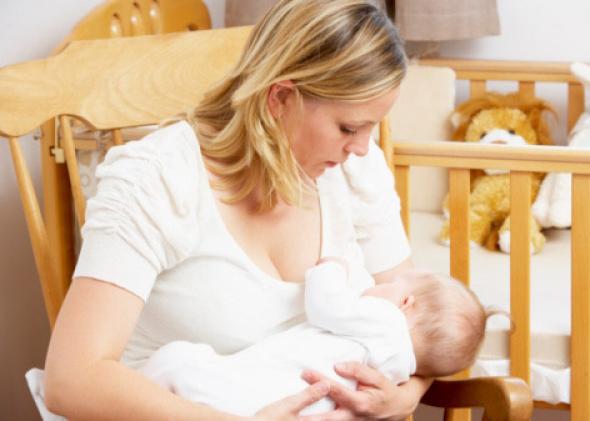Four years ago, Slate’s own Hanna Rosin wrote in the Atlantic, “when people say that breast-feeding is ‘free,’ I want to hit them with a two-by-four. It’s only free if a woman’s time is worth nothing.” Well, a British study has now put a price on women’s time: £200. That’s the rate that researchers will pay a group of low-income women to continue breast-feeding until their babies are six months old. If this experiment works, the researchers will recommend that the government expand the program on a national level.
The aim, researchers say, is to destigmatize breast-feeding in certain communities, a noble goal. Certainly women who want to breast-feed, regardless of income, should have access to support. Still, this focus on breast-feeding feels a little out of whack, especially as many impoverished families would probably love £200 to pay for, say, childcare.
Salon’s Mary Elizabeth Williams compares the payment for breast-feeding with programs to encourage parents to immunize their children. That’s a stretch. Not immunizing or vaccinating your children? That could kill them, or other children around them. Not breast-feeding your children? You know what, all the research shows they will turn out just fine. Families are going to really crazy lengths—like buying breast milk off the Internet—to give their children what is at most a very small benefit.
What is almost never discussed in these exhortations to breast-feed is how hard it can be on mothers, particularly without social support. At the beginning, you are waking up several times a night to feed, and you’re exhausted and drained. If you don’t have a lot of help with your children—perhaps you are a single mother—and you have to go back to work, you might want those extra hours of rest more than you want £200. You might be able to be a better parent to your other kids with that extra sleep and energy, or you know, just a happier person.
Or maybe you’d like that £200 to help you pay for formula, because you can’t pump at work or simply don’t want to. What’s wrong with that, really? Certainly in places where access to safe drinking water is uncertain, formula, which you must mix with water, can be dangerous. But in England—and other developed nations—that’s not really a concern.
So while paying women off to breast-feed might actually work, it seems like a whole lot of energy and money that could be put to better use elsewhere. Unlike the British commentator at Sky News, I don’t find the offer of payment demeaning. I just don’t see how breast-feeding is so important we should consider spending government money to bribe women to do it.
